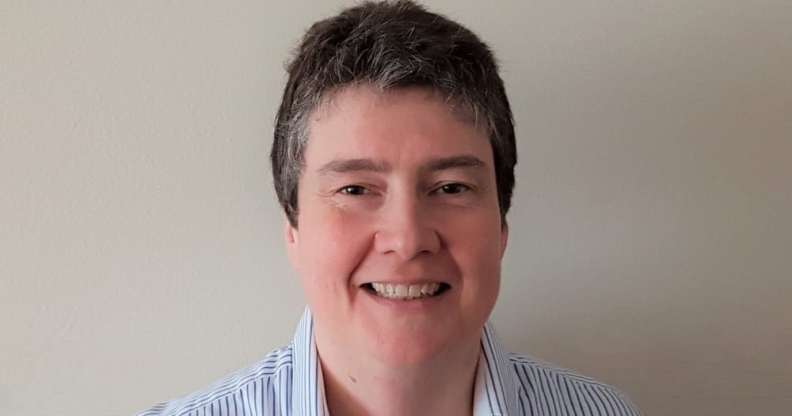Census 2021 director says sexuality and gender identity questions ‘will send a powerful message that LGBT+ people exist’

Census director Nicola Tyson-Payne. (Supplied)
Census director Nicola Tyson-Payne told PinkNews how the 2021 England and Wales census will impact the lives of LGBT+ folk, and make “every person feel counted”.
The 2021 census is, for the first time, collecting information on LGBT+ demographics by asking brand-new questions about sexual orientation and gender identity.
The once-in-a-decade survey, run by the Office for National Statistics (ONS) across England and Wales, provides a comprehensive picture of all households, and helps local and central government make decisions based on the needs of residents.
On how the ONS decided to include questions on gender identity and sexual orientation, Tyson-Payne explained how both central government and local authorities were “really keen” to see LGBT-focused questions included in the census because of the “patchy” data available on the community.”
“We start with the data users, so the people who need the data, and then all the stakeholders who are interested,” she said. “That might include local authorities, charities, the NHS, central government, businesses.
“We talk to everyone about what kind of data they need to collect and what they’re interested in. That process actually takes about six years, it’s a really long process.”
The questions then go through testing, with LGBT+ groups, local authorities, women’s groups and many more, before a question is settled on that “people can understand, and that they can answer clearly”.
Despite the lengthy and rigorous development of the questions, which are just two of around 40 in the census, misinformation and rumours have been swirling online.
However, as Tyson-Payne explained: “We’ve been running the census since 1801, so over 200 years, and we’ve asked the same sex question for that entire time. That hasn’t changed.
“We now for the first time have an additional question, albeit voluntary, on gender identity, which allows people aged 16 and over to tell us a little bit more about themselves. There is also a new question on sexual orientation.”
Tyson-Payne added: “We were very conscious that there might be people within households who maybe aren’t ready to share that information just yet, and for those people, they can contact us either on the website or they can give us a call, and we can send them a code that will allow them to do an individual response.”
Once the data on LGBT+ people comes in, it will have a huge impact, Tyson-Payne said.
“It’ll be great that we can really start to help organisations combat any inequalities in these groups, and really understand what services are needed and where they’re needed.
“Local authorities and service providers will use the data to inform the provision of the services that they deliver.
“Without that data there, those decision makers are kind of operating in a bit of a vacuum, and they’re unaware of the extent and nature of any potential disadvantage that LGBT+ people might be experiencing in terms of health, educational outcomes, employment and housing.”
She continued: “I think for the first time to be able to capture this information about sexual orientation and gender identity is really, really powerful and it will send a message to those decision-makers and those policy-makers that LGBT+ people exist, and they have needs that need to be addressed.”
Tyson-Payne highlighted the importance of as many people as possible filling out the new census questions, adding: “It’s really important that we count every single person and every person feels counted.”
Census day is 21 March. For more information census.gov.uk

